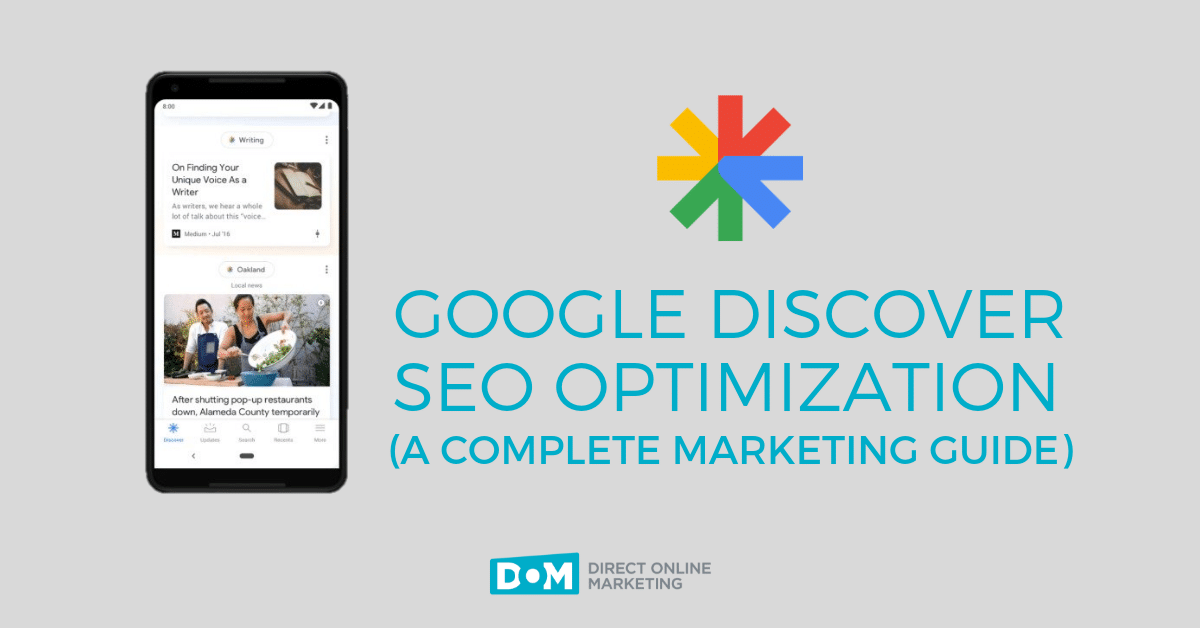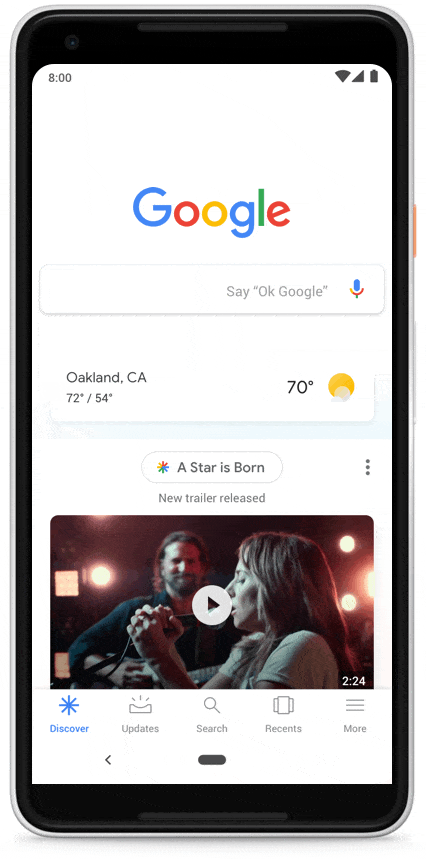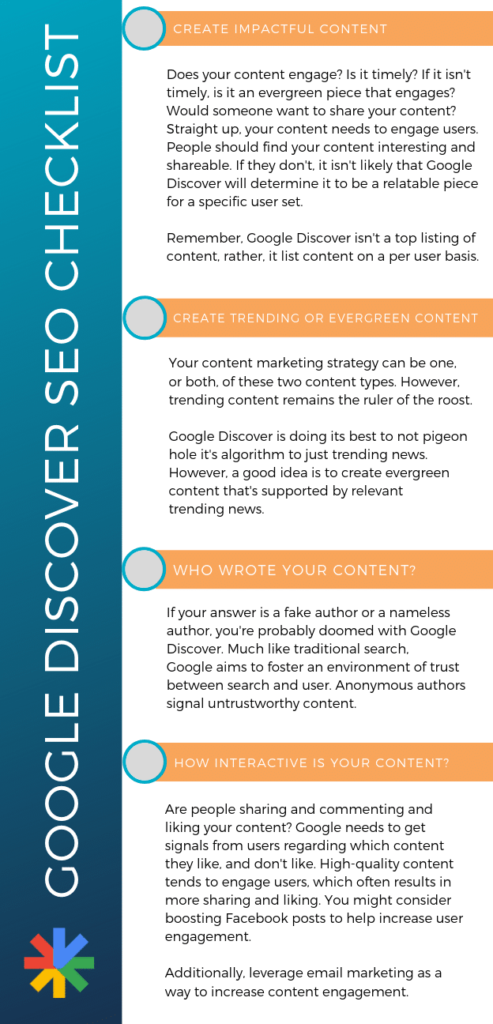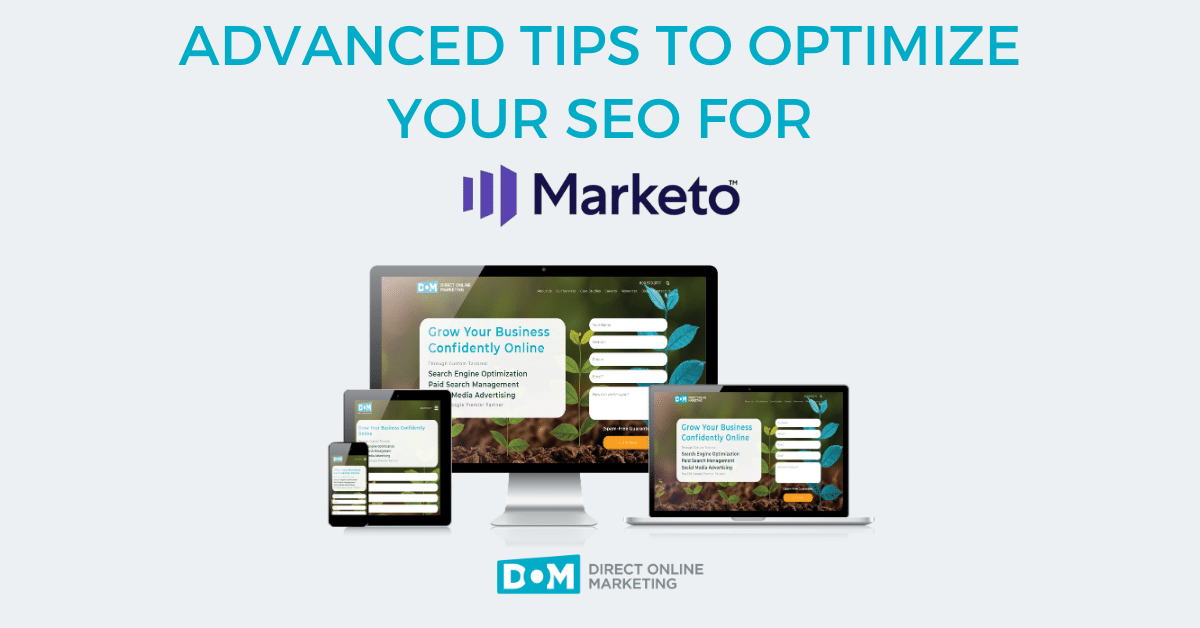
Marketers near and far are asking, what is Google Discover and how can I optimize for it? Google Discover optimization aligns itself with some similar SEO best practices, but it also runs counter to a number of them. So what is Google Discover? How can you optimize your site to claim some of that Discover traffic?
About Google Discover
Even when you aren’t searching, Google says you are. That probably feels a touch unsettling given the current data privacy environment stoking the flames of Congress, but we can get that all cleared up (not DOJ privacy investigations, rather, Google Discover).
Google Discover is a Google content feed found on Android devices. It was originally called Google Feed.
It supplies users with relevant content through an app. You notice the use of “content feed,” not “news feed,” to distinguish that the platform supports more than just trending news. That’s relevant because many people assume that Discover is just for news. Evergreen content is content that doesn’t need to be new, rather, it lives on as useful beyond the date it’s produced.
Google Discover – The New Big Thing For Publishers?
Many site owners curiously report mysterious googleapis.com referrals, that’s actually Google Discover traffic. Wait, this MIGHT be Discover traffic (more on that later).
Maybe you think you are getting Google Discover traffic. Maybe you know you are. This might be the reason you searched for how to SEO for that platform. Because your googleapis.com referrals have you stymied, you’re now looking for a way to improve and evolve your site’s content accordingly.
We can get to all of that, but first, let’s get to the brass tacks.
What Is Google Discover?
The Google Discover example above nicely illustrates the concept. While it began as a service running on Google’s Android platform, they have since rolled it out to iOS devices running the Google application.
So, why is Discover “search without searching?”
That’s because users of this platform don’t search, the content is instead recommended to them based on browser history, AI learning, and marked interests. So you don’t search on Discover, rather you discover content preselected for your taste.
There are roughly 800 million people “discovering” search to date.
Make no mistake about it, publishers need to get to know Discover from Google. It’s here to stay.
And if you don’t, you’ll be missing out.
How Can You Optimize Your Site For Google Discover SEO
Now the meat and potatoes – how do you optimize your site for Google Discover.
The introduction of Discover into SEO isn’t dramatic, but it’s relevant to strategy. As a base strategy, nothing should change in your current traditional SEO strategy.
The same way you optimize for search query traffic is the same way your content will get “Discovered.” If your content has trouble ranking in traditional Google search, it is likely to have trouble ranking in Discover.
So then what’s left?
Google Discover SEO Checklist
Here’s a simple to remember Google Discover SEO optimization checklist (you can scroll to the illustration if you prefer prettier checklists).
Create Useful Content – Does your content engage? Is it timely? If it isn’t timely, is it an evergreen piece that engages? Would someone want to share your content? Straight up, your content needs to connect with users. People should find your content interesting and shareable. If they don’t, it isn’t likely that Discover will determine it to be a relatable piece for a specific user set. Remember, Discover isn’t a top listing of content, rather, it list content on a per user basis.
Create Trending or Evergreen Content – Your content marketing strategy can be one, or both, of these two content types. However, trending content remains the ruler of the roost. Discover is doing its best to not pigeon hole its algorithm to just trending news. However, a good idea is to create evergreen content that’s supported by relevant trending news.
Who Wrote Your Content? – If your answer is a fake author or a nameless author, you’re probably doomed with Discover. Much like a traditional search, Google aims to foster an environment of trust between search and user. Anonymous authors signal untrustworthy content.
How Interactive Is Your Content? – Are people sharing and commenting and liking your content? Google needs to get signals from users regarding which content they like, and don’t like. High-quality content tends to engage users, which often results in more sharing and liking. You might consider boosting Facebook posts to help increase user engagement. Additionally, leverage email marketing as a way to increase content engagement.
How Engaging Are Your Images? – In October 2020, Google sent out an email to site owners through Google Search Console with the suggestion that they produce “high quality, compelling images” that are at least 1200 pixels wide (or larger). For sites with visual content smaller than 1200px wide eligible for presentation in Google Discover, their images will only appear in thumbnail mode if they do not make this change. Site owners interested in enabling larger image previews need to add the “max image preview” robots meta tag to their header coding.
Here’s a Google Discover Infographic that’s easy to remember.
In the end, promote your content.
Google Discover vs. Google News
Some site owners jump to the conclusion that Discover is the highway fast track to getting into Google News. At first glance, this seems like a reasonable conclusion. At second glance, it feels like fake news.
The answer is somewhere in between.
Google Discover’s content optimization instructions, located here, cite that “your pages are eligible to appear in Discover cards simply if they are indexed by Google and meet Google News content policies.”
The verbiage leads many to believe that if they are getting Discover traffic, they are eligible for Google News. Although this seems to imply such, the fact is, there is no supporting evidence of this connection. In fact, we’ve known a number of sites experiencing Discover traffic that got denied by Google News.
So we aren’t sure what to make of things. Maybe it’s best to view Google Discover as a step towards Google News, rather than a confirmation.
Discover CTR Is Higher Than Traditional Search
In terms of what to expect from Google Discover search stats, you likely can expect the CTR to be more inflated. You might expect three times higher CTRs. This, of course, depends on your content. But overall, CTRs seem to be higher on Discover than they are on traditional Google search.
Do you have questions about whether PPC or SEO is right for you? Check out this video:
To get more information on this topic, contact us today for a free consultation or learn more about our status as a Google Premier Partner before you reach out.




